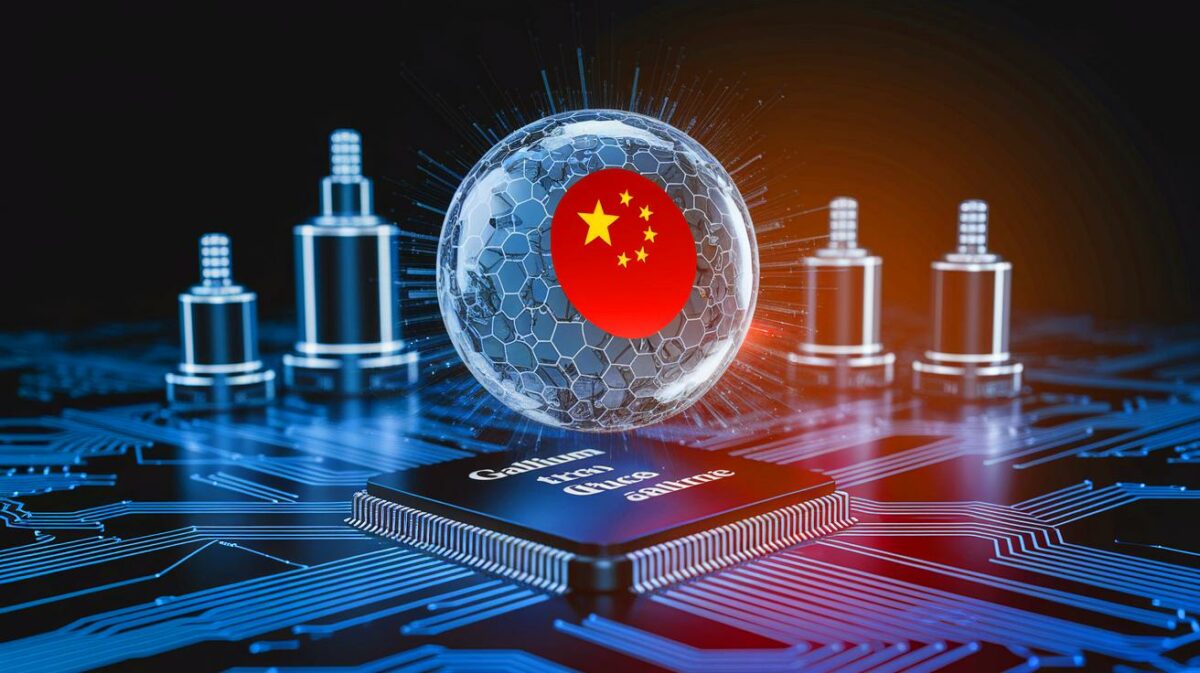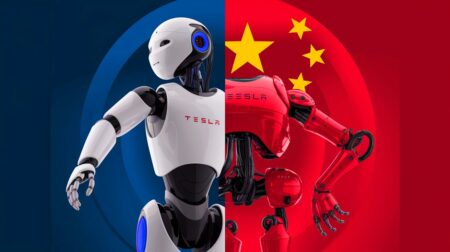| IN A NUTSHELL |
|
In the rapidly evolving landscape of global technology, a little-known element has emerged as a pivotal player in the race for supremacy. This element is gallium, a strategic resource whose control could determine the future leader in the semiconductor and battery industries. As China tightens its grip on this critical material, the world is watching with bated breath. Japan, the largest consumer of gallium, has issued a stern warning, highlighting the onset of an invisible war over this invaluable asset.
The American Decision That Sparked a Chain Reaction
On December 2, a significant shift occurred in the global semiconductor industry due to a bold move by the United States. The Biden administration imposed stringent sanctions on China, targeting its technological advancements. By adding 140 new Chinese companies to its blacklist, the U.S. aimed to curb China’s progress in semiconductor production. These sanctions were particularly focused on companies involved in lithography equipment crucial for advanced chip manufacturing. The impact was immediate and profound, threatening to disrupt China’s semiconductor industry.
China’s response was swift and decisive. The day after the U.S. sanctions, the Chinese government announced restrictions on exporting critical minerals to the United States. Among these minerals were gallium, germanium, and antimony, all essential to semiconductor manufacturing. These materials, with their unique properties, are not only vital for technological applications but also for advanced military uses. The repercussions of these restrictions were soon felt across the global supply chains, particularly affecting the production of chips and batteries.
The Race for Strategic Raw Materials
The announcement of China’s export restrictions has intensified the global competition for essential raw materials. Jack Bedder, co-founder of Project Blue, emphasized the heightened tensions caused by these measures, predicting further complications in accessing critical resources. Peter Arkell, president of the Global Mining Association of China, echoed these sentiments, noting that China’s actions were a natural response to U.S. sanctions, resulting in a “commercial war without winners.”
Japanese industry leaders, deeply integrated into the global semiconductor market, have voiced concerns over the potential long-term disruptions caused by these restrictions. Their warnings have reached the ears of governments in the United States, Japan, and allied nations. The fear is that these measures could lead to severe, lasting supply chain disturbances, particularly in securing gallium and other crucial materials.
China’s Grip on Japanese Enterprises
The situation extends beyond export restrictions. Japan fears that China may soon demand detailed accounts from Japanese companies on all products containing gallium exported to the United States. Failure to comply could lead to stricter measures, exacerbating the existing supply crisis. In fact, between August 2023 and August 2024, Japan’s gallium imports from China plummeted by nearly 85%, highlighting the severity of the situation.
“Unprecedented Military Upgrade”: Senators Reveal Massive Boost for Trump’s Iron Dome
This decline in imports underscores the vulnerability of Japanese companies, which are the world’s largest consumers of gallium, germanium, and graphite. The potential for increased Chinese control over these resources poses a significant threat to key international industrial chains.
Local Decisions with Global Consequences
The stakes are high, as Japanese companies rely heavily on gallium, germanium, and graphite. Any further tightening of China’s control over these resources could significantly disrupt major international industrial chains. For instance, electric motors for Tesla vehicles assembled in Japan, gallium arsenide lasers from Broadcom, and several essential chips in Apple’s iPhones could all be directly affected.
This situation highlights a critical strategic reality: no industrialized nation can afford to ignore the ongoing economic and commercial battle between China and the United States. In this multifaceted confrontation, every global power must navigate its economic, technological, and geopolitical ramifications, whether willingly or not. The question remains: how will the world adapt to this new era of resource-centered competition?
Did you like it? 4.5/5 (23)








Is this just another chapter in the ongoing trade war between the US and China? 🤔
Why did Japan wait until now to raise the alarm? Seems a bit late to me…
Thanks for this insightful article! I had no idea gallium was so important. 🙏
So, what’s next? Are we going to see a global shortage of semiconductors?
This feels like a high-stakes game of chess between global superpowers. ♟️
Anyone else feel like we’re living in a spy movie? 🎬
Why can’t we just find another source of gallium? 🤷♂️
The US sanctions seem to have backfired pretty quickly!
Thank you for shedding light on this complex issue. Much appreciated!
How come gallium isn’t more well-known given its importance?